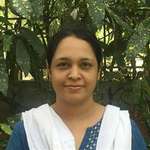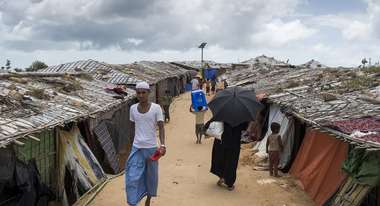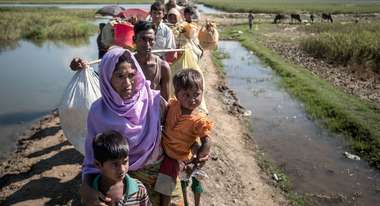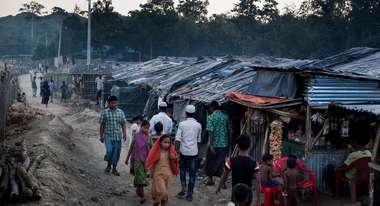"They Came and Shot at Us"
In majority-Buddhist Myanmar, the Muslim Rohingya population has been persecuted for decades. Since August, thousands have fled from the violence to Bangladesh. Welthungerhilfe employee Disha Uppal visited the refugee camp Bhalu Khali in Cox's Bazar, where currently over 615,000 Rohingya are seeking protection.
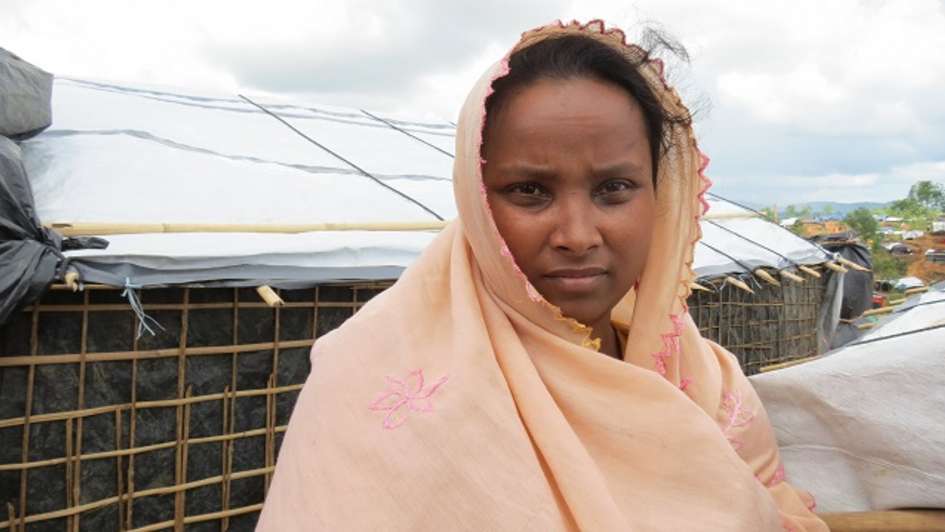
“My husband and I lived with our three children in Dakhin Merulla in the Myanmar city of Maungdaw. He was a moulvi, an Islamic scholar. We had a good life and nothing to complain about,” explains Hamida, attempting to hold back her tears. "But everything changed suddenly."
Her husband died in the indiscriminate shooting, which, according to Hamida, was carried out by Myanmar's soldiers. “They came and shot at us.” We ran for our lives. Suddenly my husband was hit in the back by a bullet. He died within seconds before our eyes. Helplessly I stood there with my children, until my sister rushed to us and told us to run,” remembers Hamida.
The only way out: Exodus
The family ran and hid themselves with others in the bushes. “The next morning the other people began to move on. Together with my family and my sister's family we followed them,” she explains.
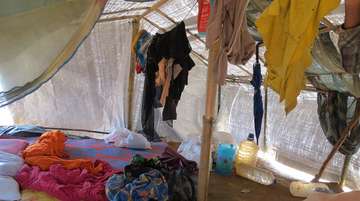
They ran for five days until, hungry and tired, they reached the river Naaf, which flows between Myanmar and Bangladesh. “My brother-in-law paid the boatman for our passage. Somehow we reached Bangladesh.”
After their arrival in Bangladesh, Hamida and her sister continued to follow the crowd and thus landed in the reception camp in Balu Khali. Now they live on a remote hill in the camp, staying in a tent that they erected together with her sister and brother-in-law.
There is a lack of food and medical provision.
Rohingya who reached the reception camp earlier are settled close to the main street. The new arrivals can only settle on the hills, however, which are far from the road. This means they have to walk a long way to get aid supplies and medical assistance.
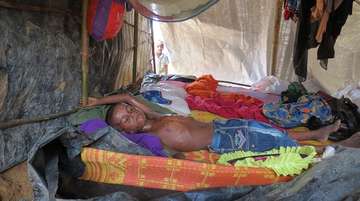
Still in shock and mourning, Hamida was not able to collect their rations. Her sister gives her some rice and lentils, which she received from aid organisations.
Her son caught a skin infection and had a fever. Hamida's sister took the boy to a doctor in the camp. Despite medication, the health of the child has not yet improved.
When the children cry and ask for their father, Hamida tells them, “Look around you, all these people here have left their homes because it is no longer safe there. We have to live here for a while.”
Working with its long-standing local partner organisation Anando, Welthungerhilfe is supplying food to 2,600 families in Cox's Bazar district. An expert from the Welthungerhilfe Emergency Response Team is supporting the partner to organise the increase in aid.




